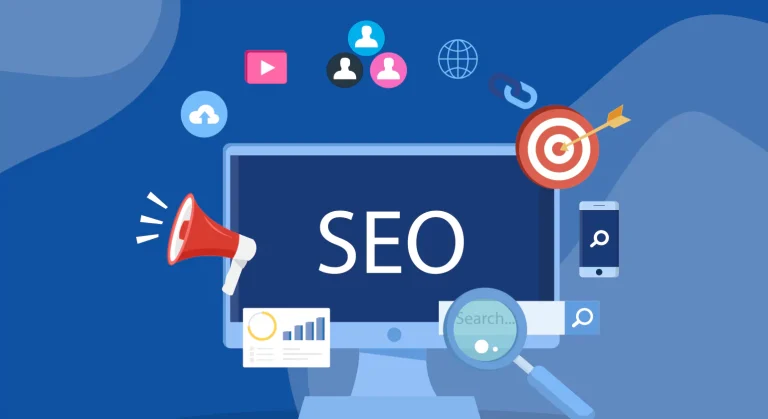Running an e-commerce store in Melbourne is exciting—but it also means facing serious competition. With more online businesses popping up every year, standing out in search results is more important than ever. This is where search engine optimisation (SEO) plays a vital role. It’s one of the most effective ways to bring targeted traffic to your website without paying for ads every day.
But how exactly does it benefit small businesses?
Why SEO Matters for E-commerce
When people want to buy something online, their journey often starts with a Google search. If your online store appears near the top of those search results, you’re more likely to get clicks, traffic and conversions. Good SEO helps your site show up for the right keywords—without needing to spend money on ads.
Unlike traditional advertising, SEO works around the clock. Once your pages start ranking, they continue attracting customers even while you sleep. For Melbourne e-commerce businesses, this is a smart investment that delivers long-term value.
If you’re already exploring digital marketing services Melbourne businesses rely on, focusing on strong e-commerce SEO can help you increase visibility, attract more customers and grow your sales consistently.
Choosing the Right Keywords
One of the first steps in e-commerce SEO is picking the right keywords. These should be words or phrases your customers use when searching for your products. Instead of focusing only on broad terms like “shoes” or “electronics,” try to include long-tail keywords such as “women’s leather ankle boots Melbourne” or “wireless earbuds for gym.”
Long-tail keywords usually have less competition and higher conversion rates. Make sure your product pages, categories, titles and descriptions include these terms naturally. Avoid keyword stuffing—it looks unnatural and can hurt your rankings.
Optimise Your Product Pages
Each product page should be treated like its own mini landing page. Here’s how to make them SEO-friendly:
- Use unique product titles that include keywords
- Write detailed descriptions that tell a story about the product
- Include clear, high-quality images with alt text
- Add structured data (schema) to help search engines understand your content
- Display reviews and ratings, which boost trust and visibility
Avoid copying manufacturer descriptions. Instead, write your own to stand out in search results.
Improve Your Site Structure
A clear, simple website structure helps both search engines and customers. Use clean URLs with descriptive words, such as “/mens-running-shoes” instead of “/product123.” Make sure your site has a logical navigation flow so users can easily browse categories and products.
Use internal linking to connect related products or blog posts. This not only improves user experience but also helps search engines understand your site’s hierarchy.
Make It Mobile-Friendly
Most people now shop from their phones. If your e-commerce site isn’t mobile-friendly, you’ll lose customers and fall behind in search rankings. Google considers mobile usability a key ranking factor.
Choose a responsive design that adapts to all screen sizes. Also, make sure buttons are easy to tap, pages load quickly and checkout is smooth on mobile devices.
Speed Up Your Website
Page speed is another ranking factor that also affects user experience. If your website is slow, shoppers are likely to leave. Use tools like Google PageSpeed Insights to identify what’s slowing things down.
Compress images, use caching, and consider upgrading your hosting to support faster performance—especially if your site has lots of product pages.
Create Helpful Content
Publishing valuable content can boost your e-commerce SEO by attracting more organic traffic. Consider writing blog posts, how-to guides, gift ideas, and product comparison articles. These not only help with keyword rankings but also build trust with your audience.
For example, if you sell home decor, you could publish articles like “Top 5 Styling Tips for Small Living Rooms” or “How to Mix and Match Throw Pillows.” These posts help customers while positioning your store as an expert in your niche.
Leverage Local SEO for Melbourne Shoppers
Even if you sell online, local SEO is still relevant—especially if you have a physical store or offer local delivery. Add your business to Google Business Profile, include your Melbourne address, and use keywords like “online gift shop Melbourne” or “fashion boutique in Melbourne” on your pages.
This helps you rank better when local customers search for products in your area.
Partnering With Digital Marketing Services in Melbourne
E-commerce SEO takes time, strategy and ongoing effort. Many online store owners work with professionals to save time and get better results. Agencies offering digital marketing services Melbourne businesses trust can help with:
- Technical SEO audits
- Keyword research
- On-page and off-page SEO
- Content creation and optimisation
- Link-building strategies
- Local SEO
By teaming up with experts who understand the local market, you can create a strategy tailored to your goals and target audience.
Track and Adjust
Once your SEO efforts are in place, track how your website performs. Use tools like Google Analytics and Google Search Console to measure traffic, bounce rates, and keyword rankings. If something isn’t working, adjust your strategy.
SEO isn’t a set-and-forget task. It requires regular updates, testing, and staying on top of trends and algorithm changes.
Standing out in search is possible for Melbourne e-commerce businesses—it just takes the right approach. By focusing on keyword research, optimising your site, improving speed and offering helpful content, you can attract more traffic and convert more visitors into customers.
If you’re looking for support, partnering with digital marketing services Melbourne businesses already use can help you stay ahead of the competition. With a solid SEO strategy in place, your online store can grow sustainably and stand out in the crowded online marketplace.
